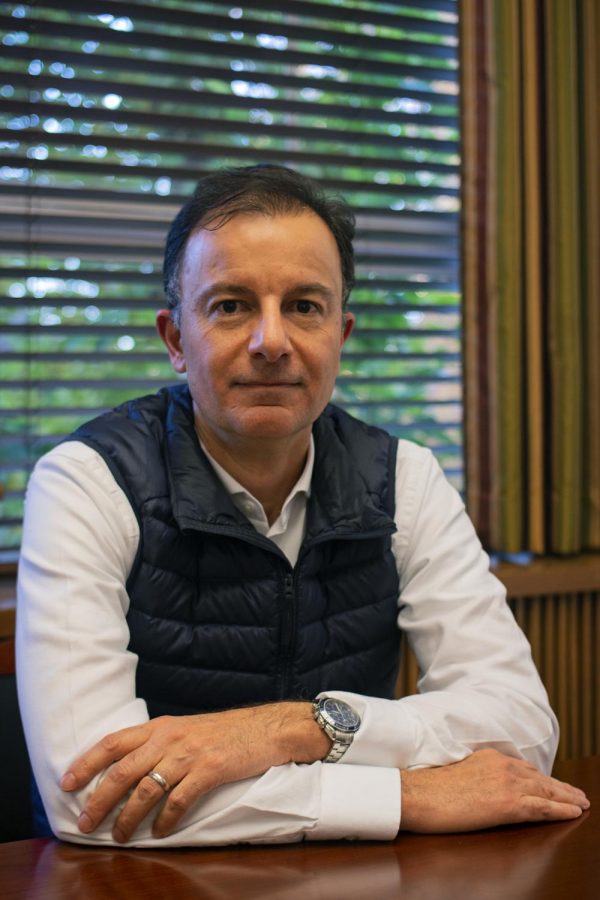New SU CFO Wilson Garone Confronts Opportunities and Challenges

Wilson Garone takes on the position as Seattle University’s new Chief Financial Officer.
After a search that began in early 2019, Wilson Garone has been appointed the new Chief Financial Officer (CFO) of Seattle University. His previous work as a Corporate VP and CFO at Microsoft and his personal experiences make him uniquely equipped to facilitate better financial organization at Seattle University moving forward.
“After retiring from my position at Microsoft, I wanted to do something different—learn something totally new,” Garone said. Garone expressed that the mission and vision of Seattle U aligned with his personal values. Coming from a family with many professors, this opportunity made him excited to work at an institution of higher learning as a way of reconnecting with his roots. He plans to utilize his past experiences within the corporate sector in his new role. While Garone may have retired from tech, he certainly has not left the business of handling complex budgeting goals within large, complicated contexts.
Last week, the President’s Forum highlighted the decreased undergraduate enrollment that Seattle U is facing, as it falls short of budget projections. “There is a sense of urgency around the financial situation of the university,” Garone said. “It’s a challenge and an opportunity.” Seattle U’s new “Uncommon Good” fundraising campaign will aim to fill the 121 undergraduate student wide funding gap while paying for new programs and routine costs.
With a $5.9 million spending deficit to handle in the 2019-20 school year alone, Garone certainly took on a heavy task as Seattle U’s new CFO. However, his ample experience working for one of the most dynamic and successful companies on the planet, combined with his passion for serving the Seattle U community, might just be exactly what it takes to put the university’s finances back on track.
Seattle U has been operating at a loss for several years. This presents obvious challenges for Garone, who has been here since August. He is committed to ensuring the health of Seattle U from an institutional perspective. “We need to reposition ourselves financially with the priorities of our strategic planning,” Garone said. “There are enough things changing in the marketplace today that it is impacting higher education. The universities that move first are going to be the ones that are more successful going through that transformation.”
Garone hopes to make Seattle U a dynamic university while maintaining the core values. This will be a several year process, both because Seattle U’s strategic planning policy is revisited every five years, and also because of how much change is necessary for schools to embrace in the modern climate.
Garone’s experience in the corporate sphere as a financial professional in the tech industry—an industry that moves at a stunning pace of reinvention, makes him something of a transformation expert—a vital asset for a CFO at a university in the 21st century. That said, he stressed that he is still learning. “This is all very different from a corporation,” Garone said. “What is exciting for me on the personal side is the opportunity to learn as well as implement things that I did over my thirty years of previous experience.”
Universities are different from companies in key ways, such as their non-profit status and responsibility to students rather than shareholders. One way he will apply his previous corporate experience is in effective allocation of funding. He will work to ensure that assets are not spread too thin or incorrectly utilized. “We are a not-for-profit institution. However, a lot of the things we do require resources,” Garone said. “It is very easy in a corporate environment or at an institution to have resources spread in the wrong places, and to lose the focus of the direction we want to go. The CFO has the ability through several instruments, one of them being budget, to influence how these investments land.”
Garone is focused on engaging with others at Seattle U to ensure he is kept up to date with the shifting needs of the campus community. “It is important that the CFO doesn’t work in a silo…the CFO should be constantly listening and understanding, because priorities are dynamic and keep moving,” Garone said. “Partnership with the academic world and faculty and listening to the voice of the students are the core reason why we exist here. These are the two most important things that I am focusing on in terms of learning about the university, the priorities we have, and where we have to deploy resources.”
The editor may be reached at news@su-spectator.com

